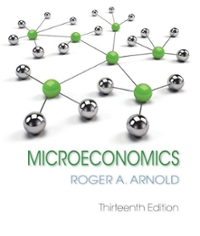Answered step by step
Verified Expert Solution
Question
1 Approved Answer
Suppose that the reserve requirement for checking deposits is 20 percent and that banks do not hold any excess reserves. If the Fed sells $3
Suppose that the reserve requirement for checking deposits is 20 percent and that banks do not hold any excess reserves. If the Fed sells $3 million of government bonds, the economy's reservesdecrease Correct by$3Correctmillion, and the money supply willdecrease Correct by$15Correctmillion. Points: 1 / 1 The money multiplier is the reciprocal of the reserve ratio. If R is the reserve ratio for all banks in the economy, then each dollar of reserves generates 1R dollars of money. With a required reserve ratio of 20% and no excess reserves, the money multiplier is 10.2=5 in this case. When the Fed sells $3 million of government bonds, it reduces the money supply in two ways. First, the public pays for these bonds with its holdings of currency and bank deposits, directly reducing the amount of money in circulation. Second, as people make withdrawals from banks to buy these bonds from the Fed, banks find themselves with smaller quantities of reserves. In response, banks reduce the amount of lending, and the process of money creation reverses itself. Therefore, reserves will decline by $3 million in this case, and the money supply will contract by 5$3 million=$15 million. See Sections: The Money Multiplier; and How the Fed Influences the Quantity of Reserves. Now suppose the Fed lowers the reserve requirement to 15 percent, but banks choose to hold another 5 percent of deposits as excess reserves. True or False: The money multiplier will remain unchanged. True Incorrect False
Step by Step Solution
There are 3 Steps involved in it
Step: 1

Get Instant Access to Expert-Tailored Solutions
See step-by-step solutions with expert insights and AI powered tools for academic success
Step: 2

Step: 3

Ace Your Homework with AI
Get the answers you need in no time with our AI-driven, step-by-step assistance
Get Started


